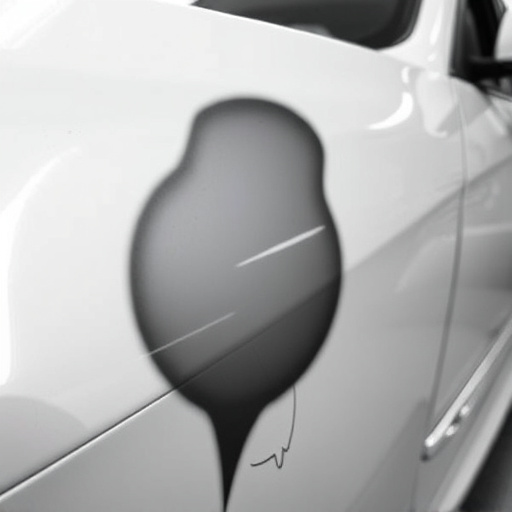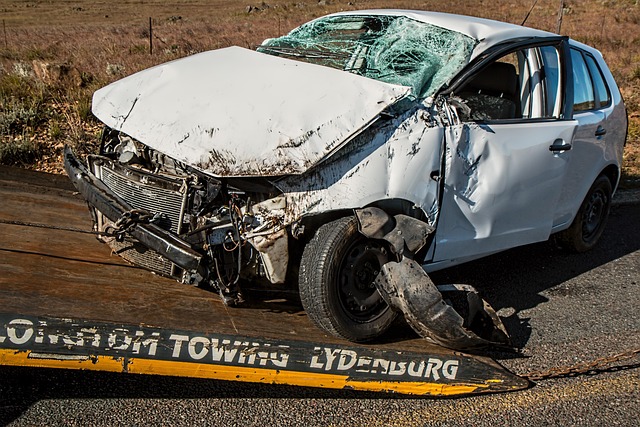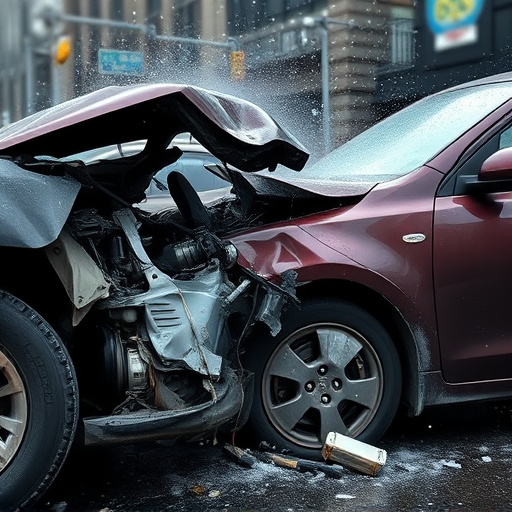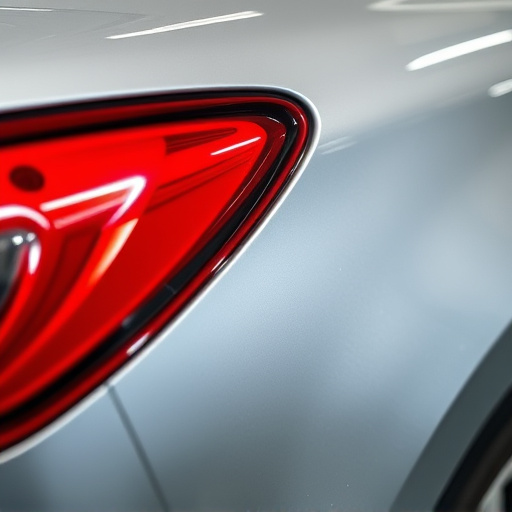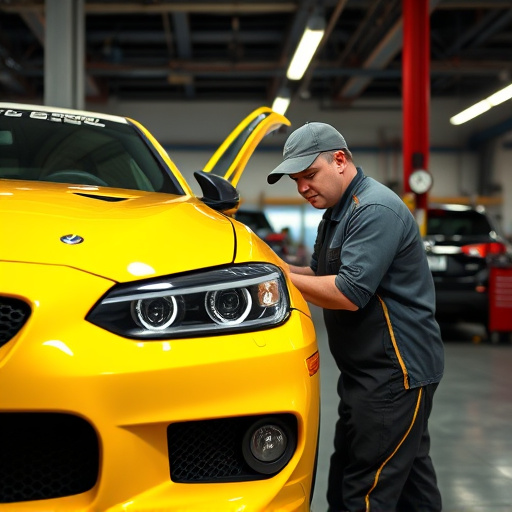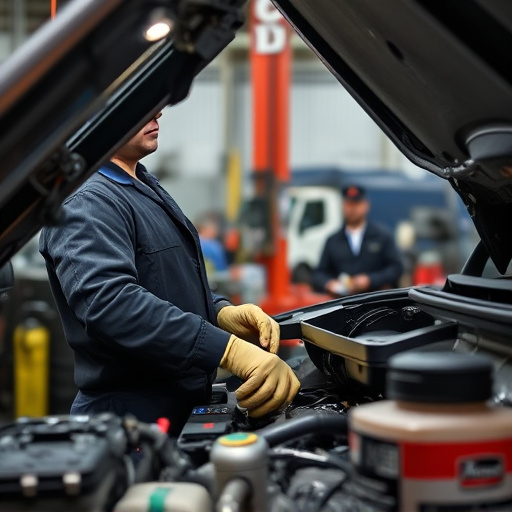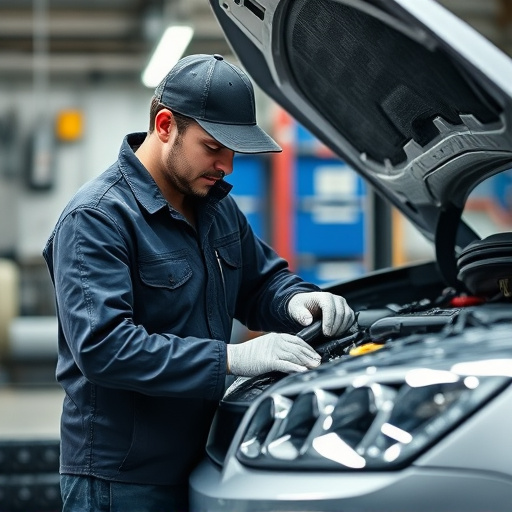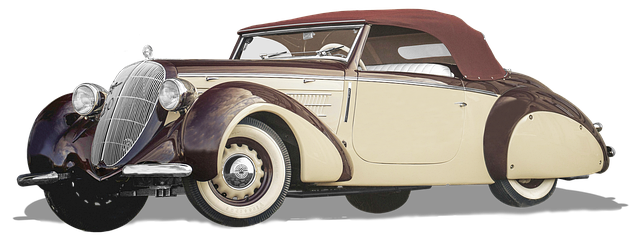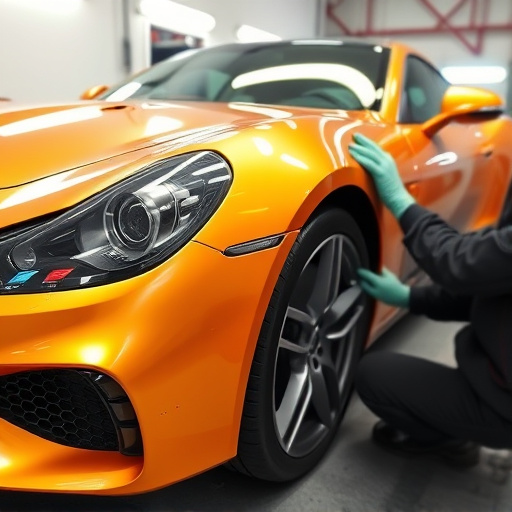Tesla sets high standards for adhesives, approving products rigorously tested for strength and compatibility with modern car materials. Tesla-approved adhesives are crucial for maintaining structural integrity in electric vehicle repairs, offering superior bonding and resistance to unique EV challenges. In body shops, a blend of these adhesives, welding, and fasteners ensures robust, long-lasting connections that meet high Tesla standards, restoring original manufacturing quality.
“Discover the revolutionary power of Tesla-approved adhesives—a game-changer in modern automotive manufacturing. This comprehensive guide explores the stringent standards and specifications that define these advanced materials. From understanding the types of adhesives approved for critical automotive applications to mastering combination strategies with welding and fasteners, we delve into the science behind this innovative technology. Optimize your projects with this essential knowledge on Tesla-approved adhesives.”
- Understanding Tesla's Adhesive Standards and Specifications
- Types of Adhesives Approved for Automotive Applications
- Effective Combination Strategies: Welding, Fasteners, and Adhesives
Understanding Tesla's Adhesive Standards and Specifications

Tesla, a pioneer in electric vehicles, sets stringent standards for all components used in their cars, including adhesives. When it comes to selecting adhesives for vehicle repair services or auto body work, especially in dent repair scenarios, adhering to Tesla’s approved specifications is paramount. These standards ensure not just optimal performance but also long-lasting durability and safety for the vehicle.
Tesla-approved adhesives must meet rigorous criteria, covering factors like bond strength, weather resistance, and compatibility with various materials commonly used in modern car manufacturing. By specifying these requirements, Tesla guarantees that their vehicles can withstand the test of time, maintaining structural integrity even after exposure to diverse environmental conditions. This attention to detail ensures that any auto body services or dent repair work using these adhesives will contribute to the overall quality and reliability of the vehicle.
Types of Adhesives Approved for Automotive Applications

In the automotive industry, especially with cutting-edge electric vehicles like Tesla models, the demand for specialized adhesives has surged. These adhesives play a critical role in ensuring structural integrity and long-lasting performance, particularly during frame straightening and collision repair processes. Tesla-approved adhesives are designed to meet stringent quality standards, offering excellent bonding strength while withstanding the unique demands of electric car repair services.
Polyurethanes, epoxy resins, and cyanoacrylate adhesives are among the types commonly approved for automotive applications due to their exceptional adhesion properties and resistance to environmental factors. Each type offers specific advantages tailored to different stages of car repair, whether it’s during initial manufacturing or subsequent service and maintenance, ensuring vehicles remain in top condition, much like Tesla’s reputation for innovation and quality.
Effective Combination Strategies: Welding, Fasteners, and Adhesives

In an automotive body shop, achieving a robust and long-lasting connection often requires a strategic combination of welding, fasteners, and adhesives—especially when using Tesla-approved adhesives for car damage repair or fleet repair services. This harmonious blend ensures structural integrity and aesthetic precision, catering to the high standards set by electric vehicle manufacturers like Tesla.
For instance, Tesla-approved adhesives can be synergistically paired with mechanical fasteners for enhanced bonding strength. Proper welding techniques further bolster these connections, creating a seamless fusion that mirrors the original manufacturing quality. This multidisciplinary approach is particularly vital in complex repair scenarios, where restoring structural integrity and maintaining aesthetic harmony are paramount.
Tesla-approved adhesives play a pivotal role in ensuring the structural integrity and safety of electric vehicles. By understanding the brand’s stringent standards and exploring the various types of adhesives suitable for automotive applications, manufacturers can make informed decisions when combining welding and fasteners with adhesive solutions. This integrated approach optimizes vehicle performance, enhances durability, and contributes to Tesla’s commitment to innovative, high-quality engineering.
